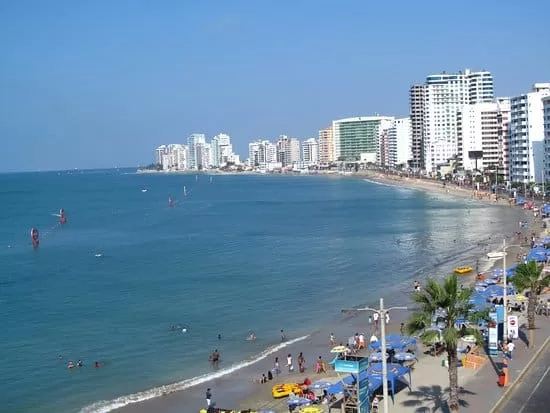Hiring personnel in Ecuador, regardless of your staffing requirements, can be a rewarding process, leading to finding some very hard-working, highly trained and well-qualified employees. However, it is also a process that can be somewhat perilous and fraught with unpleasant surprises, if you are not familiar with the nuances and differences, which are prominent in the Ecuador employment culture. In fact, one major false assumption, for example, is that “employee hiring concerns” are the domain of large multi-national corporations and that small business operators, or those simply looking to personally hire domestic help, need not concern themselves with the details. Nothing could be further from the truth, as Ecuador’s often complex laws regarding the hiring of personnel apply equally to a corporate enterprise, as they do to an individual hiring a full-time gardner for their private residence. The intent of this article is to somewhat demystify the hiring process, but for details, please consult a qualified labor-law attorney in Ecuador.
Every personnel search begins in the similar fashion of either a public open call for interview, or the more discrete pursuit of following up on personal referrals received from trusted parties, be they professional recruiters or simply well-intentioned friends. Our strong advice is to seriously consider relying on the referral process, when hiring in Ecuador.
Once you have interviewed the desired number of candidates for the position(s), diligently checked references, educational certifications and specialized training achievements, you are ready to move forward and make an offer of employment. In Ecuador, this is generally done by way of an Employment Contract, intended to protect both employee and employer. While not negating that reality, it is important to note that Ecuadorian law is very favorable to the employee, not withstanding the validity of the Employment Contract. Hence, it is extremely important that the employer ensure a very well-worded, strongly crafted Employment Contract.
In Ecuador, there are a wide variety of employment contracts, depending on the nature of the activity performed by the employee and the requirements of the employer. The actual valid creation of any of the employment contract variants precisely occurs when an employee renders his/her services within a specific schedule, at pre-established premises and in exchange of a wage agreed on between employer and employee.
Any such contract starts with a trial term lasting three (3) months. Within said trial term, either employer or employee may finalize the employment relationship in accordance with their interests, or terminate the arrangement. In Ecuador, this is an extremely vital assessment period for the employer, because it is the only time when they can readily terminate an employee, without strict process for cause and without specific remuneration for their tenure. The minimum employment term for a finalized employment contract is one (1) year. A fixed-term employment contract may not initially exceed two (2) years. Following these two years the employment contract will be deemed to have an indefinite term and may only terminate in accordance with the provisions stipulated in the Employment Code, with the corresponding indemnities.
Ecuador labor law recognizes a fairly traditional work schedule, to include an eight (8) hour work day, a forty (40) hour work week, and an overtime pay schedule at rates of 150% or 200% of the worker’s normal rate, for hourly employees. Traditional office work hours are Monday-Friday, from 8:30 AM – 12:30 PM, and from 2:30 PM – 6:30 PM. In practice, however, “real world” office hours vary greatly and the employer is not obligated to follow the aforementioned guidelines, so As long as the terms are clearly spelled out in the Employment Contract.
Traditionally, nine (9) paid public holidays are recognized yearly in Ecuador, with employees being entitled to an additional fifteen (15) days of paid vacation for each employment year (365 days, from first day of employment). An additional one (1) day per year is automatically granted, after five (5) years of continuous employment, with the same employer. As with anywhere in the world, deviations from this may be allowed, but it must be included in an otherwise air tight Employment Contract. The courts have a propensity to side with the employee, where doubt exists. No ambiguity is allowed, if an employer wishes to protect their interests. Also, please note, the implied flexibility in terms is an exception and one should never heed any advice suggesting that “there are ways around this”, or “you don’t have to pay attention to the norms”. Even an Ecuadorian national might end up paying a high price, literally, for heeding such bad advice, let alone an expat starting a business in Ecuador, or simply hiring domestic help.
Health and safety in the workplace are treated as serious priorities by Ecuadorian law, even if the criteria applied meet only Ecuadorian standards. For example, there are simply certain practices in the construction industry within Ecuador, which in many countries would not remotely meet health and safety standards. This has led some to conclude that Ecuador lacks any health and safety guidelines. Nothing could be further from the truth. Health and safety employment issues are dealt with in a number of statutes, regulations, and codes of practice. All employers have a general duty to ensure the health, safety, and welfare of their employees and the health and safety of the general public. Health and safety inspectors from the Ministry of Labor and Human Resources (Ministerio de Trabajo y Recursos Humanos) can require employers to improve standards and can prohibit specific activities. Under the current President Correa Administration, such standards are being tightened and more diligently enforced.
I don’t think it will be to anyone’s surprise that employers in Ecuador are also required to contribute to the national social security system. It is a fairly common, almost global practice. However, in addition to traditional social security funding, Ecuador requires employers to contribute one (1) month’s wage each year to a reserve fund, also managed by the social security system, for each employee completing a full year’s employment cycle.
When that time arrives, which it almost always eventually does, to end the employer-employee relationship, certain specific rules of law apply. In Ecuador, work contracts may be terminated when the time period specified in the contract is completed, when a specific job is finished, by mutual agreement, by decision of one of the parties, or for reasons beyond the control of either party. The party terminating the contract must give thirty days’ notice. In theory, the options seem fairly standard and liberal. In practice, it can be a whole other story, if it is the employer seeking the termination.
For example, in Ecuador, if an employer wants to dismiss a worker, and if legal reasons support such a dismissal, the employer must first obtain authorization from the Ministry of Labor and Human Resources. Should the employer fail to obtain the authorization or should the employer not have any legal justification for the dismissal, indemnities, based on years of service, are payable to the employee. Note that the burden of proof as to “legal justification” is solely on the employer and standards for meeting that litmus test are often set quite high, as interpreted by the Ministry of Labor and Ecuadorian courts. Keep diligent records, with specific acts, dates and times, if you think the termination of an employee is warranted. Unfortunately, it is best that these records age a but, with the passage of time, to show a clear pattern, as opposed to an “isolated incident or two”, due to a “bad day(s)”.
If the employer fails to meet the required standards for termination, then, as a minimum, the employee is automatically entitled to three (3) months’ remuneration payable for service lasting up to three years. For service of three or more years, one month’s remuneration for each year, up to twenty-five (25) months’ remuneration, is payable. A fraction of a year is considered a complete year, for purposes of remuneration. This applies equally to the foreman of a construction site, a VP of Operations, or a full-time housekeeper, residing at your private residence.
Because of the latter stipulations, many arising out of the difficulty in terminating “tenured” staff, as well as the significant minimum remuneration requirements, one often hears the suggestion to hire only Independent Contractors (IC) in Ecuador, which are not governed by the same strict standards. Clearly, the preceding is not viable for certain occupations and within certain larger corporate structures. In such cases, hire a good labor lawyer, strictly follow their advice on contract terms and keep diligent employee records, with frequent documented review periods.
However, for someone starting a small business or simply hiring residential staff, strongly consider the IC option. For example, if you are opening a small bakery, it might be best to hire 2-3 daily shifts of ICs, then to hire, say, 2 full-time employees. Likewise, instead of hiring a full-time housekeeper, consider contracting a “maid service”…or two…or three…which can be had inexpensively in Ecuador. Same for a cook…gardner or chauffeur. If you can avoid a full-time, employment contract employee and replace them with an IC, our standing advice is to do so, until Ecuador’s labor laws do not balance out, in a manner more clearly equitable for both employee and employer.
However, do not take any of this advice to imply that we suggest you avoid the hiring of Ecuadorian personnel where needed. The labor legislation system here is fairly mature, with court’s experienced in the handling of grievances and, frankly, the likelihood of significant issues fairly remote, provided you have in place a strong employment contract. In fact, you may find hiring an Ecuadorian employee to be one of the best value decisions you’ve ever made in your business.
Contact Author
"*" indicates required fields
Stay Ahead on Every Adventure!
Stay updated with the World News on Escape Artist. Get all the travel news, international destinations, expat living, moving abroad, Lifestyle Tips, and digital nomad opportunities. Your next journey starts here—don’t miss a moment! Subscribe Now!










